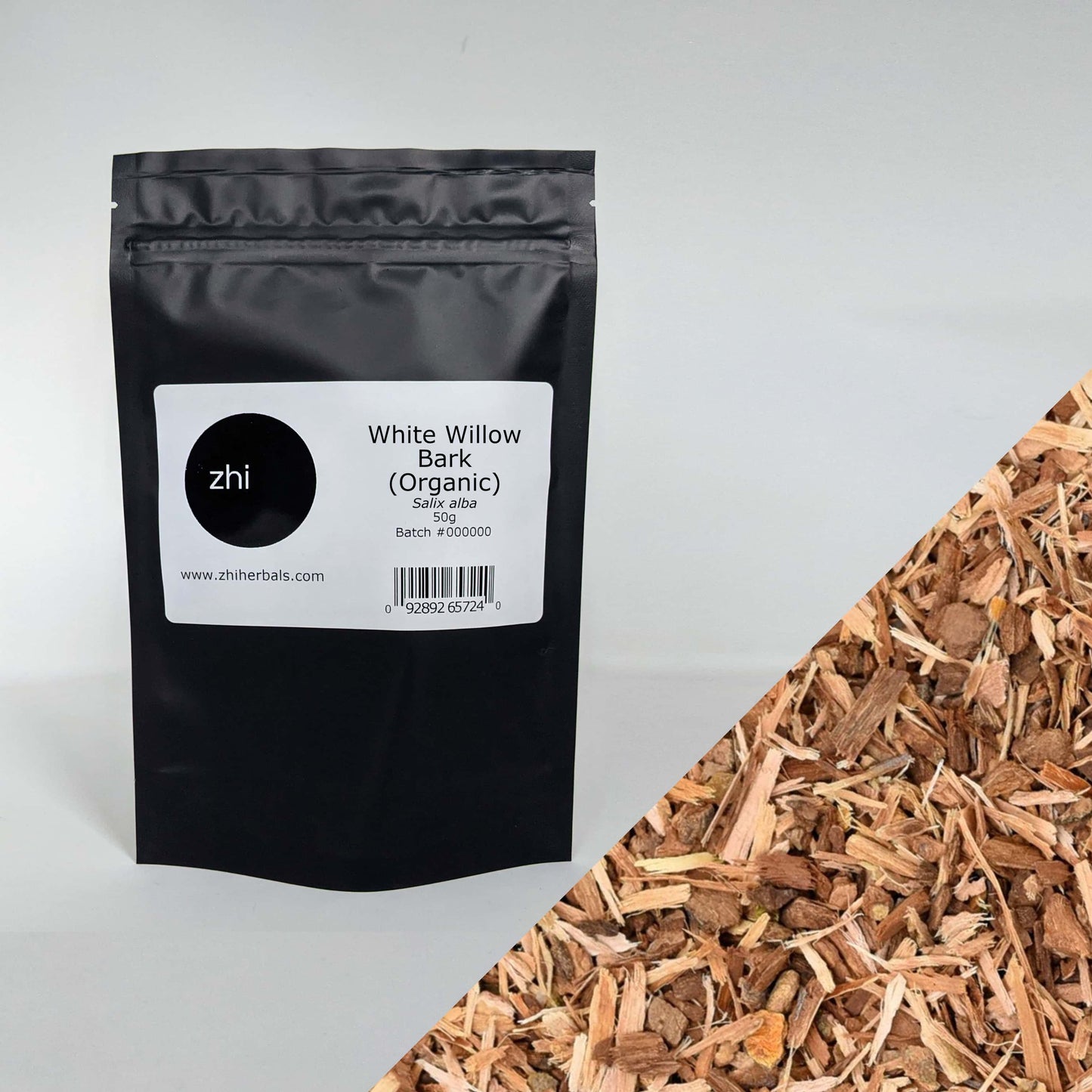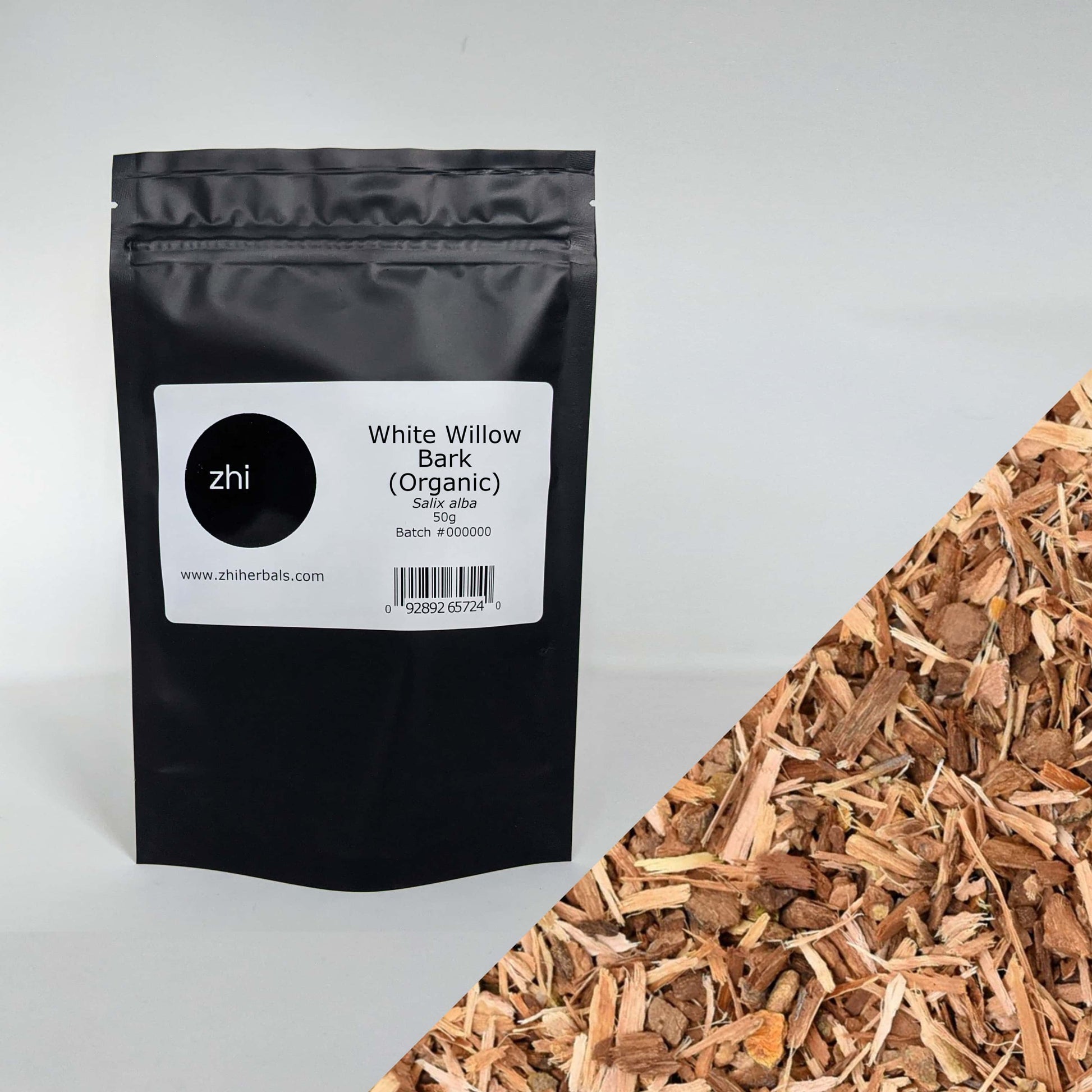Zhi Herbals
White Willow Bark (Organic)
White Willow Bark (Organic)
Couldn't load pickup availability
Common Name
White Willow Bark, Willow, Salicin Willow
Latin Name
Salix alba
Origin
Croatia
What Is White Willow Bark?
White willow is a medicinal species of willow tree that is best known for its high salicylic acid content. The white willow tree is native to Europe and Asia, and is sometimes also simply called ‘willow bark’. White willow tree bark is not commonly eaten, although it can be chewed. More commonly, white willow bark is prepared as a tea or tincture and consumed as an herbal remedy for conditions such as muscle pain and rheumatoid arthritis.
How to Use White Willow Bark (Common Uses)
White willow bark can be taken internally as a tea, powder, capsules, or extract. White willow bark is an herb that can be smoked, and it is often used as a smokeable remedy for pain relief.
Medicinal Uses and Benefits of White Willow Bark
White willow bark is an anti-inflammatory remedy that is often used for a variety of pain and fever related conditions due to its high salicylic acid content. It is often considered a safer alternative to the drug Aspirin.
The pain-relieving effects of white willow bark are often reported as slower to be felt but longer lasting than Aspirin, without causing any digestive upset.
White willow bark is a good choice for conditions such as rheumatoid arthritis, muscle pain, headache, joint pain, sciatica, and more.
White willow bark tastes bitter and astringent. It is often used in combination with other herbs.
When white willow bark tea is applied topically it has a powerful astringent effect on the skin.
Active Constituents in White Willow Bark
Salicin, salicortin, tremulacin, populin, fragilin, salireposide, trirandrin, vimalin, aromatic aldehydes, salicylic acid, flavonoids, tannins, catechins, coumaric acid.
Notable Facts About White Willow Bark
People who are using aspirin or other salicylate containing substances, alcohol, barbitutates/sedatives, NSAIDs, anticoagulants, methotrexate, spironolactone, phenytoin, valproate medications may wish to consult with their health care practitioner about potential interactions with white willow bark.
Share




